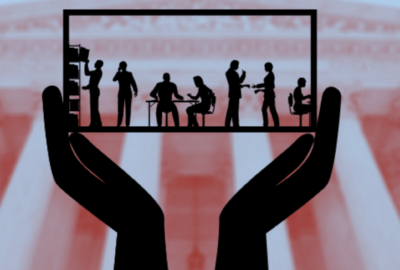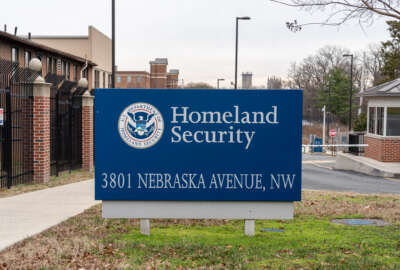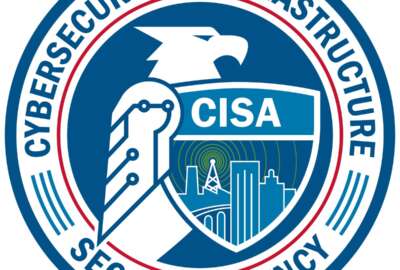Get your nominations in for the Oscars of federal technology transfers
"Technology's changed quite a bit since the 80s. In 2024, we had 32 award winners we recognized from eight federal agencies," said Jesse Midgett.
Today is the final day for members of federal labs to submit nominations for the 2025 FLC awards. The FLC stands for the Federal Laboratory Consortium for Technology Transfer which is a network of over 300 federal laboratories and research centers with the mission of accelerating federal technologies into the marketplace. To find out how they choose their best and brightest, Federal News Network’s Eric White spoke with Jesse Midgett on the Federal Drive with Tom Temin who’s a technology transfer professional for NASA, but also the FLC awards chair.
Interview transcript:
Jesse Midgett FLC Awards program was established in 1984 with 17 categories. And this was driven by the Stevenson-Wilder Technology Transfer Act of 1980, the Bayh-Dole Act 1980 and the Federal Technology Transfer Act of 1986. And throughout the years, it’s morphed and expanded to reflect the changing landscape of tech transfer and the types of technologies that are getting moved out. Technology’s changed quite a bit since the 80s. In 2024, we had 32 award winners we recognized from eight federal agencies. And this was a 25% increase over the 2023 award period. I did pick up right before the 2024 awards judging, so that’s when I came on duty. The Federal Laboratory Consortium is promoting this for everybody so that it’s another avenue to get our stories out, and also to compare and maybe be competitive and with people that do the same things that we do. And as well as that they have a large training arm that lessons learned and techniques are shared across the government. There’s about 300 federal labs all doing their best to transfer their technologies.
Eric White And what is it that the judges are looking for when they try to award an individual for being in this field and showing excellence in it?
Jesse Midgett Sure. So we actually have several categories, and there is one called the Excellence in Tech Transfer. And that one, we want to recognize that outstanding work in tech transfer has been done during the past ten fiscal years. You would find that an actual tech transfer case, describe how it started. What makes it exceptional versus routine tech transfer. And then you’re going to name the players and their role and the outcomes. And you really do want to show, with any of these award nominations, you want to show what the best possible measurable outcome is and the benefit to that commercial environment outside of government, or sometimes they are between labs. But the excellence in technology transfer work is a very popular one. We also have an impact award, which is more about, Hey, maybe it wasn’t anything out of the ordinary as far as a transfer, but the impact it had made a tangible and lasting impact on the population and the marketplace, locally or globally. We also have a inter agency transdisciplinary partnership award that honors partnership across at least two agencies, especially when the collaboration bridges different technology sectors. So you might have massive technology that gets shared with the military. And you also would like to have a commercial partner in that. So those sorts of things make your nomination stronger.
Jesse Midgett There’s a state and local economic development award. What did you do in your backyard at home versus reaching across the country? And how did you leverage being there and making excellent tech transfer? There’s the Tech Transfer Innovation Award. What did you do differently to get the technology transfer? Did you establish a new tech transfer mechanism, a new license type, a new organization to help you get the technology transferred, that sort of thing. Tell us the trick that you invented to make that happen. We also have outstanding research or small research team awards. So sometimes these technologies really require a level of effort that is not always seen in the course of a government job. And sometimes these researchers really do, we call them their babies or their children, their inventions, and they really do have to bring them to life and then find them a new home outside of what we do. Within the government we’re never going to crank up a factory and make a product. We want to see a technology have that kind of life as the various acts we outlined earlier tell us that we have to get a commercial partner to take up the torch from us and carry it further.
Jesse Midgett We have a Rookie of the Year award, someone who’s only been in tech transfer a couple of years but is really getting a lot of technology transfer you can submit them for that. There’s outstanding Technology Transfer Professional award, someone who’s got a rookie been in there, but they’re still doing it outstanding compared to what one might expect in some regard. You can submit them for that. There’s a Lab Director of the Year award. That one we want to see that the lab director has been personally involved with technology transfer and has fostered an environment that enables the tech transfer professionals and the researchers to transfer their technology. A lot of times I see people nominated, and he ran this lab during this time, and the lab did these things. And what we really want to hear is what did the director do to make these things happen, and how was he hands on involved? Not that he was simply at the helm and tech transfer was happening in the caboose behind him, but that he was actively involved. There’s also the Harold Metcalf Service Award. This is a tech transfer professional fellow who’s volunteer with the FLC and has done significant contributions to the FLC in the process of this, because we know we all have our regular jobs and maybe your management doesn’t see this as something you can take a lot of time away from your main deliverables for your day job. And it requires a lot of work beyond that sometimes to get the job done. So we want to recognize those individuals who’ve made that sacrifice and pushed out beyond 9 to 5 work. There’s also the last one I’ll talk about is Regional Technology Transfer Award. Again, we want to talk about how things happen regionally. We leverage our regional locations and influence to get tech transfer done, and then like to follow up like that on the national stage.
Eric White Obviously got a lot of different categories there recognizing different aspects of federal technology transfer. As a technology transfer professional yourself, what is it that someone can do to stand out in the technology transfer world?
Jesse Midgett Well, it helps if you know the technologies that you’re marketing. There are many people in tech transfer that are not experts in the fields of the technologies they’re marketing. But if you can buckle down and learn it, and have conversations with the inventors, read up and survey literature, etc., you can become conversational the point where you can tell a commercial entity enough they can determine if they want to license it. And then you can also bring in the technology transfer inventor to talk to them on an interview. So it’s good to have relationship with the inventors so that you can do that readily and they’ll support you when you need more information than you’re able to absorb in a short amount of time in your portfolio full of varied types of technologies. You need to be able to figure out value a company to see if they can take the technology. And there’s a lot of vetting that goes on when talking with external entities to see if they’re going to be good licenses or not. Also, it’s good to be involved in the regional activities. That’s where I am today. I’m at a regional event for entrepreneurs who are looking to license or bring all the resources together in one place for them and talk to them about how you might take government technology and turn it into a business.
Eric White Today is the last day to nominate somebody. Can you just give us a brief overview of how someone might go about doing that? What is the address for the web page they need to visit to make sure they get it in in time.
Jesse Midgett You’ll want to Google Federal Labs or otherwise use a search engine .org. And you’ll want to spell it out because the acronym is used by many different entities. So type out Federal Labs, and then when you go there, right at the very top of that home page, that title says 2025 Awards, Don’t miss your chance to win. Start your submission. You click on that and start your submission. Now, the one thing that FLC does is they like the labs to coordinate within so that only one person from the lab is submitting. So they have a representative and either that person or a designee under that person who will do the actual submissions. It’s not willy nilly open to the general populace per say at the center.
Copyright © 2025 Federal News Network. All rights reserved. This website is not intended for users located within the European Economic Area.
Eric White is news anchor and Federal Drive producer at Federal News Network.
Follow @FEDERALNEWSCAST






